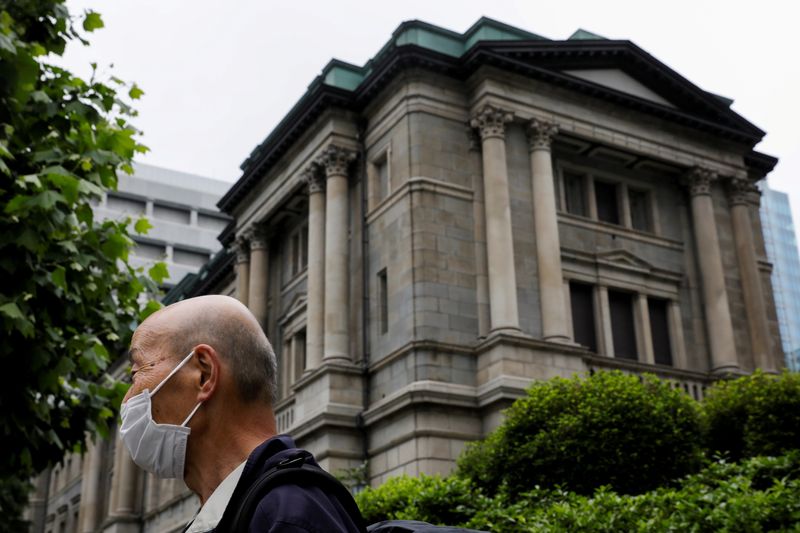By Leika Kihara
TOKYO (Reuters) -Bank of Japan Deputy Governor Masayoshi Amamiya said on Wednesday there was no need for the central bank to tweak its ultra-loose policy with inflation "well below" its 2% target.
While Japan's economy is likely to recover more clearly next year as supply constraints subside, the spread of the Omicron new COVID-19 variant clouds the outlook, Amamiya said.
Still, subdued price growth means Japan faces a different situation than the United States and Europe, where rising inflation heightens the chance of an unwinding of ultra-loose monetary policies, he told a speech.
"In light of Japan's price situation, you can see the BOJ for now has no need to modify its massive monetary stimulus programme," Amamiya said.
Amamiya, however, said inflationary pressures were gradually growing even in Japan with more companies being able to pass on higher costs to consumers.
Amamiya offered few clues on whether to end or extend a range of pandemic-relief programmes that expire in March 2022, saying only that a decision would come this month or in January.
But he said corporate funding was improving particularly for big firms, signalling the chance of phasing out the BOJ's buying of corporate bonds and commercial paper.
Small service-sector firms, on the other hand, suffered from tight funding, Amamiya added, suggesting the BOJ may maintain a loan scheme targetting smaller firms beyond the March deadline.
"We'll make an appropriate decision looking at developments on corporate finance, including the BOJ's December tankan business sentiment survey," he said.

The BOJ ramped up purchases of corporate bonds and commercial paper, and introduced a loan scheme aimed at channelling funds to small firms via financial institutions last year to combat a cash crunch caused by the pandemic.
The recent spread of the Omicron new variant complicates the BOJ's decision, expected to be made as early as next week's rate review, on whether to phase out the programmes when they reach their current deadline in March 2022.